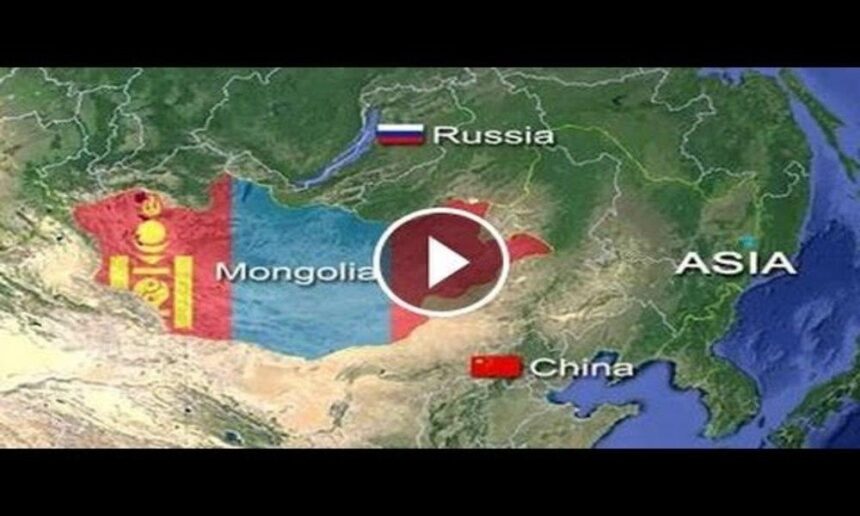Mongolia, sandwiched between two big superpowers in the world, is home to three million people. Its territory is as great as total areas of France, Germany, England, Italy, the Netherlands and Switzerland combined. Mongolia is a democracy with a unicameral parliamentary system.
This country is very rich in natural resources that can allow its every single citizen live a prosperous life. On top of those resources, it has more than 40 million livestock. However, all the wealth belongs only to few individuals while one third of the population is living poorly.
Mongolians have recently been talking about avoiding full economic dependency on mining, diversifying the economy, acquiring competitiveness and making certain products a global brand.
The Mongolia Economic Forum, which is currently taking place in Ulaanbaatar, is discussing how our industries can break into the world market. Selling value-added products on the international market has greatly contributed to the development of many countries. Therefore, the forum is discussing ways Mongolia can invest some of its mining income into certain industries, develop infrastructure and improve capacity, education and skills of its workforce.
When choosing a path to development, Mongolia has an opportunity to implement a blue strategy. When we do so we are inventing a brand new market space and a new demand. There will therefore be no competition, which will make our businesses achieve great success. Conversely, under a red strategy, we’ll have to stand out in an existing market that is full of competition, which makes the task much harder.
Some works done by Mongolians have already been introduced to international markets. Skilled Mongolians worldwide are working in fashion design, financial services, computer software, medicine and investment banking and supplying their products to the global market.
Due to relatively smaller size of our domestic market, we can only achieve an economy of scale by entering the international market. A report developed by a Harvard University research team advises that the potential Mongolian industries which can compete globally include cashmere, meat, tourism, information technology and mining logistics.
The government led by N. Altankhuyag, sets out this goal of making each of these industries have a global brand as the main topic of discussion on the fourth Mongolia Economic Forum.
Creating a global brand depends on whether we can manage to nurture competition between many companies in one sector, set up consolidated databases of information and workforce, introduce new technologies and have outstanding features of cost and products in every part of the value chain. If government involvement is needed, we can practice Chile’s experience by conducting global research on a certain industry, establish a shareholding company and sell most of its shares to the public through the stock exchange.
Another blue strategy for our country is seizing the golden opportunity to become the next “Panama Canal” by establishing a railroad transit center that will allow for the transportation of natural resources from Russia to China, Korea, Japan, India and other Asian countries. (Read more on www.jargaldefacto.com)
Furthermore, taking advantage of the revolutionary benefits of information technology, Mongolians can have more productive businesses. With the help of a smartphone, one can receive many services like acquiring public governance information and making financial transfers. Western countries are providing free services that provide all kinds of information (including legal and health services) related to mobile phone owners. In order to maintain these services, they hire professionals from related industries and have them to work for only a few hours a week.
If every Mongolian can use a computer, our labor force and its efficiency could be dramatically improved. It would allow hundreds of thousands pensioners be active on labor markets and work from home. Also, if every herder family in the countryside is provided a laptop, it will accelerate the market circulation of agricultural products and contribute to reducing information disparity. It will also improve the distribution of common goods and groceries which would result in increasing business incomes.
It is greatly appreciated that the Minister of Culture, Sport and Tourism is planning new initiatives under the slogan “Go nomadic, experience Mongolia.” This is of course to direct the tourism industry towards the understanding of our nomadic culture, bird watching and discovering more about dinosaurs and Mongolia’s prehistoric significance.
In addition, if Mongolia establishes ski and golf resorts in the forest aimags and manages to attract tourists from Korea and Japan (offering them direct flights) we can invent a new field of tourism and reduce seasonal dependencies. These two sports are developing rapidly. The beautiful Mongolian summers as well as our natural snow season are a dream for many people.
If we turn all these above mentioned ideas into actions and implement a blue strategy that wisely reflects the United Arab Emirates, we will achieve great success in a short time. Citizens of the United Arab Emirates have the highest living standards in the world and have the right to enroll at any international university with tuitions paid for by the government.
The time has come for Mongolians to turn our natural resources into human capital and implement the blue strategy in order to develop and diversify our economy. Bon voyage!
Translated by B.Amar
2013.03.05












